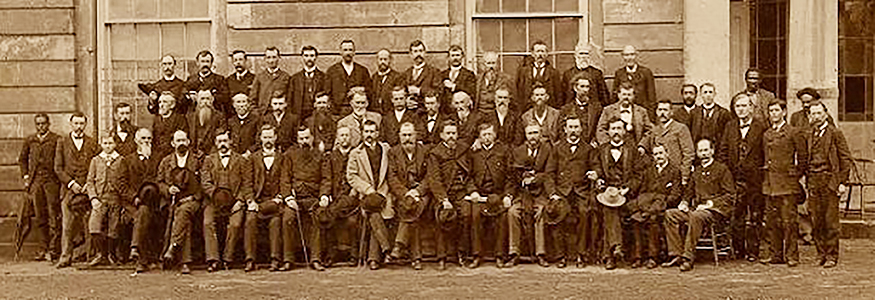Malik Miah
Posted July 3, 2023

THE U.S. SUPREME Court refuses to hear a challenge to Mississippi’s Jim Crow law that denies voting rights to Black people.
So much for the “color blind” society proclaimed by the Supreme Court in its ruling June 30 to outlaw affirmative action programs in university education. The same day, but under the news media and public radar, the unelected body with lifetime terms, made its full objective crystal clear.
The court upheld a century-old Mississippi amendment to the state constitution that was explicitly written and adopted to deny Black people in the state the right to vote and fully participate as equals with white citizens.
The Supreme Court rejected even hearing a challenge to the constitutional amendment adopted by the state of Mississippi that codified the racist Jim Crow era.
The justices left in place a state constitutional provision barring certain felons (mainly Blacks) from voting. The state argued the provision adopted 130 years ago is no longer tainted by the racist intentions of its original authors because it has subsequently been updated on two occasions. Yet it is still in the constitution.
“We came here to exclude the Negro,” said the president of the 1890 constitutional convention. And they did.
Justice Jackson Exposes SCOTUS Hypocrisy
The court’s decision not to hear the case brought by those seeking to officially overturn that clause prompted a sharp dissenting opinion from the first Black woman Justice, Ketanji Brown Jackson. She was joined by fellow liberal Justice Sonia Sotomayor, the first Latina on the court.
Jackson contrasted the decision with the conservatives’ ban of affirmative action, which said race could no longer be a factor in college admissions. If the court viewed affirmative action as race discrimination, she said, then the Mississippi measure must be seen similarly as race based.
“So, at the same time that the court undertakes to slay other giants, Mississippians can only hope they will not have to wait another century for another judicial knight-errant,” she wrote. “Constitutional wrongs do not right themselves.”
Jim Crow Era
The measure was first enacted in 1890 at a time when whites in the Deep South were fighting back against post-Civil War efforts to ensure formerly enslaved Black people had equal rights. Federal Union troops had enforced laws (and invalidating racist laws on the books like Black Codes) that benefitted the free slaves, including the right to vote and hold elected office. After 1877 this changed when troops were removed from the former slave states including Mississippi.
The crimes listed in the new clause included bribery, burglary, theft, bigamy and timber larceny. They have remained largely the same since then. Mississippi voters amended it remove burglary in 1950, adding murder and rape in 1968.
The specific aim of the original amendment to the state constitution was to disproportionately prevent Black people from voting. They stripped felons convicted of what were thought to be “Black crimes” from being able to vote but declined to do so for “white crimes.”
The ploy worked to convict innocent Black people. Jim Crow kept the Black community under economic and political control.
So-called “separate but equal laws“ were passed. Black people lived in segregation where they had little access to decent housing, medical care or education. The state’s resources went disproportionately to whites as is still the case in Mississippi and most states.
While the original amendment removed voting rights from people convicted of bribery, burglary, theft, arson, obtaining goods or money under false pretenses, perjury, forgery, embezzlement and bigamy, the list did not include the more serious crimes of murder and rape.
Today, those convicted of any one of 23 specific felonies in Mississippi permanently lose the right to vote.
This measure continues to have a staggering effect in Mississippi. According to an estimate by The Sentencing Project, 15% of the Black voting-age population remains blocked from casting a ballot, representing 10% of the overall voting-age population. According to an estimate by The Sentencing Project, a criminal justice non-profit. The state is about 38% Black, but Black people make up more than half of Mississippi’s disenfranchised population.
Rare to Get Back Right to Vote
Once a Mississippi citizen loses their right to vote in the state, it is essentially impossible to get it back. To do so, a disenfranchised person must get the legislature to approve an individualized bill on their behalf by a supermajority in both chambers, then the governor needs to approve the bill. There are no online instructions or applications, and lawmakers can reject or deny an application for any reason.
Between 1997 and 2022, an average of seven people successfully made it through the process each year, according to Blake Feldman, a criminal justice researcher in Mississippi.
Yet both a federal district judge and the U.S. court of appeals for the Fifth Circuit upheld Mississippi’s policy. The Fifth Circuit court claimed, the two revisions got rid of any discrimination in the original policy.
In 1974 the Supreme Court upheld that states could bar voting rights to those convicted of felonies. Since no justice wrote a reason for not hearing the Mississippi appeal, it is assumed they saw it fitting alongside its earlier stance.
The Supreme Court did not say why it rejected the case (it takes four votes on the court to grant review) and Justices Ketanji Brown Jackson and Sonia Sotomayor were the only two justices who declared their dissent from the denial. Jackson wrote an opinion saying the Fifth Circuit had committed “two egregious analytical errors that ought to be corrected.”
The refusal to accept the Mississippi case reveals the decision was political and not based on the Constitution. Once again, the basic democratic rights of Black people are dammed.
